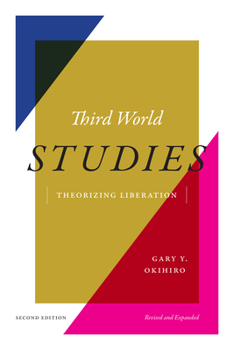Third World Studies: Theorizing Liberation
In this revised and expanded second edition of Third World Studies, Gary Y. Okihiro considers the methods and theories that might constitute the formation of Third World studies. Proposed in 1968 at San Francisco State College by the Third World Liberation Front but replaced by faculty and administrators with ethnic studies, Third World studies was over before it began. As opposed to ethnic studies, which Okihiro critiques for its liberalism and US-centrism, Third World studies begins with the colonized world and the anti-imperial, anticolonial, and antiracist projects located therein as was described by W. E. B. Du Bois in 1900. Third World studies analyzes the locations and articulations of power around the axes of race, gender, sexuality, (dis)ability, class, and nation. In this new edition, Okihiro emphasizes the work of Third World intellectuals such as M. N. Roy, Jos Carlos Mari tegui, and Oliver Cromwell Cox, foregrounds the importance of Bandung and the Tricontinental, and adds discussions of eugenics, feminist epistemologies, and religion. With this work, Okihiro establishes Third World studies as a theoretical formation and a liberatory practice.
Format:Paperback
Language:English
ISBN:1478030674
ISBN13:9781478030676
Release Date:August 2024
Publisher:Duke University Press
Length:328 Pages
Weight:1.06 lbs.
Dimensions:0.7" x 6.0" x 9.0"
Customer Reviews
0 rating





